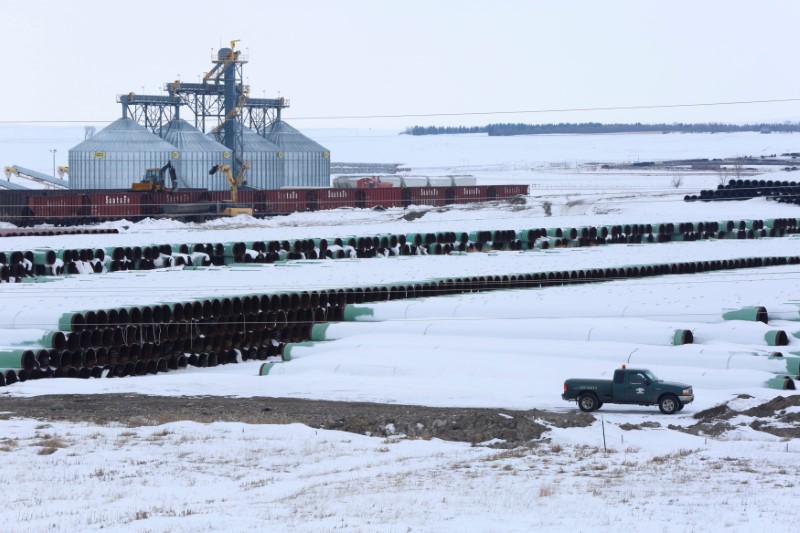By David Ljunggren
OTTAWA, June 29 (Reuters) - Canada wants a single federal authority to assess the potential impact of oil pipelines and mines, officials said on Thursday, a move that could help quell protests that have blocked a series of major projects.
Responsibility for examining the environmental impact of projects on federally-regulated land in Canada is shared between three separate entities, a system that the Liberal government says the public does not trust.
Government plans released on Thursday mean the much-criticised national energy regulator would lose its power to assess natural resource projects.
Aboriginal and environmental protesters currently trying to block major pipelines have long complained the National Energy Board is too close to the industry.
"This is all about rebuilding public trust in how we make decisions on major projects that are important to our economy," said a government official who requested anonymity because they were not authorized to talk to the press.
The official said the government was currently thinking about giving overall responsibility for probes to the Canadian Environmental Assessment Agency.
Protracted protests last year forced Ottawa to veto one major pipeline from Alberta's oil sands to the Pacific Coast and are dragging out study of another line to the Atlantic.
Canada needs to get its landlocked crude to its east and west coasts to avoid pipeline bottlenecks that leave Canadian oil trading at a discount.
Under the plans, the new assessment body would pay more attention to the long-term implications of a project and the views of aboriginal populations as well as allowing public comments much earlier in the process.
The government would retain final responsibility for deciding whether a project could go ahead.
Even if the new body were created it would have little immediate impact on the energy sector. Existing projects, such as TransCanada Corp 's TRP.TO proposed Energy East pipeline from Alberta to the Atlantic Coast, will be assessed by the NEB under current rules.
The government plans to introduce draft legislation later this year to implement the changes and hopes they will become law in 2018.
Reuters reported last year that the Liberal government would consider stripping the NEB of sole oversight for new projects.
